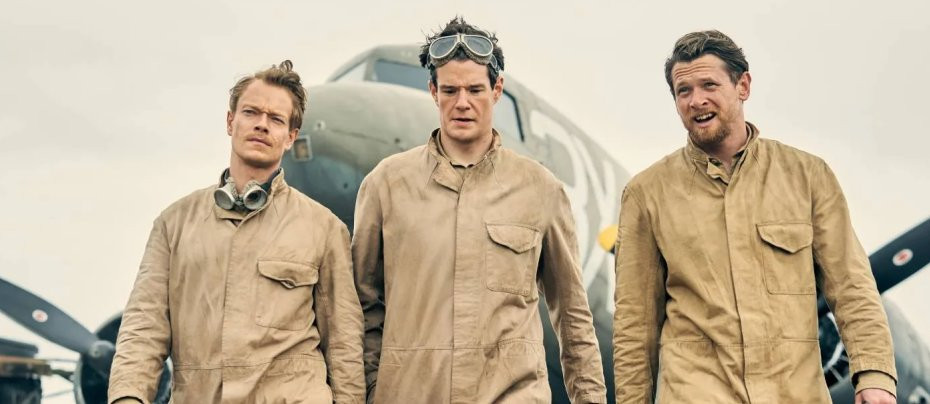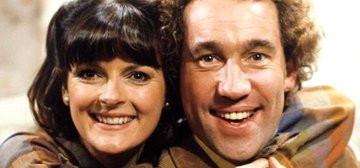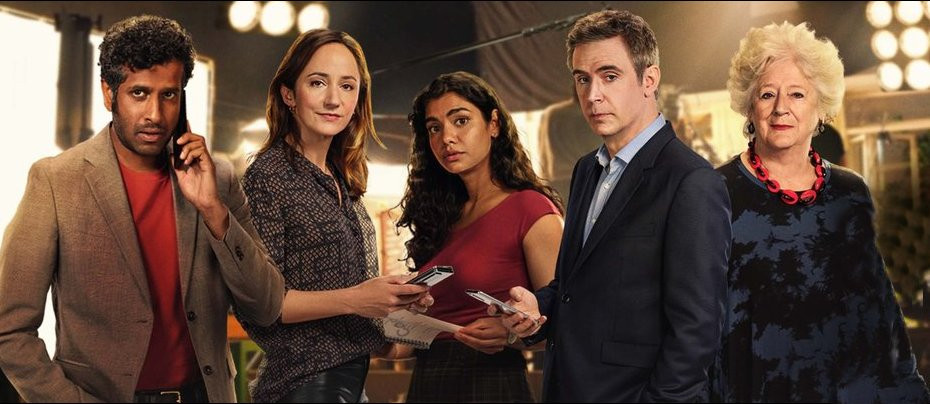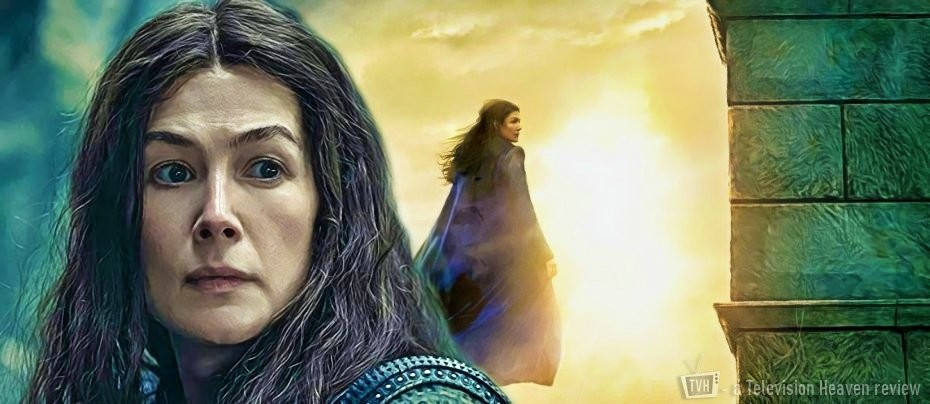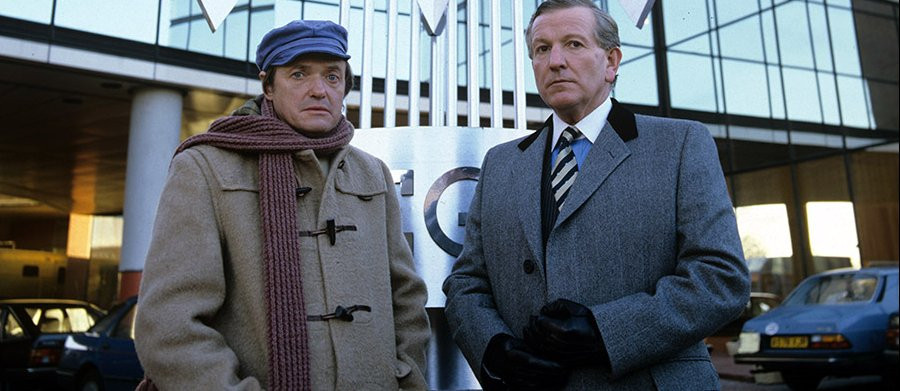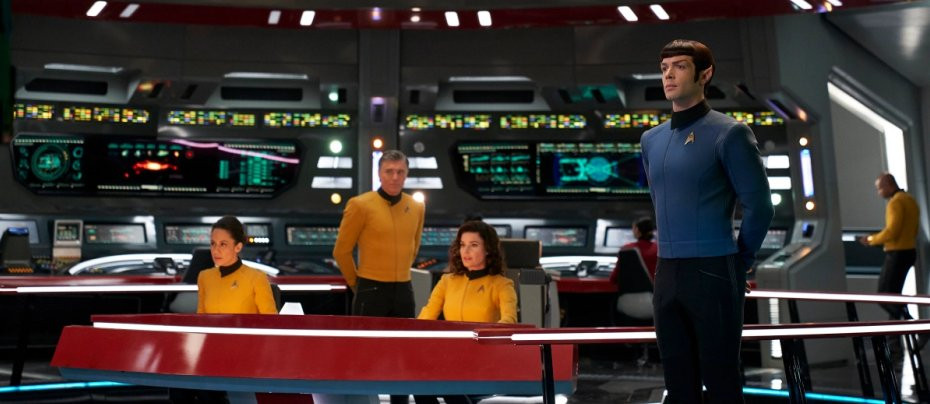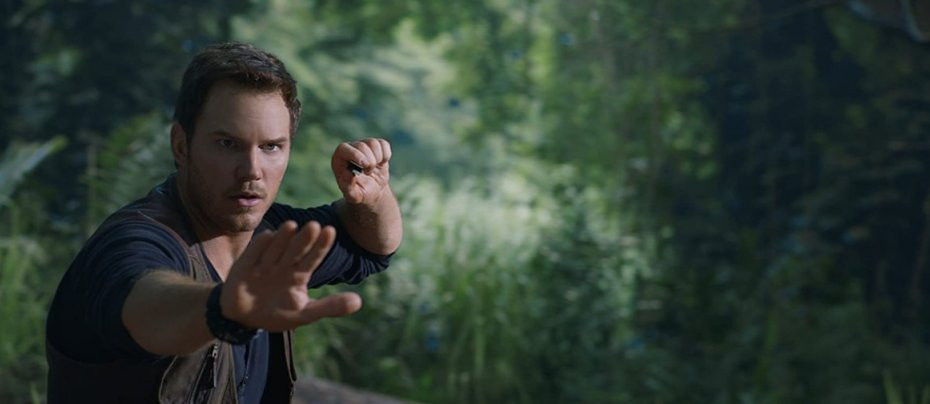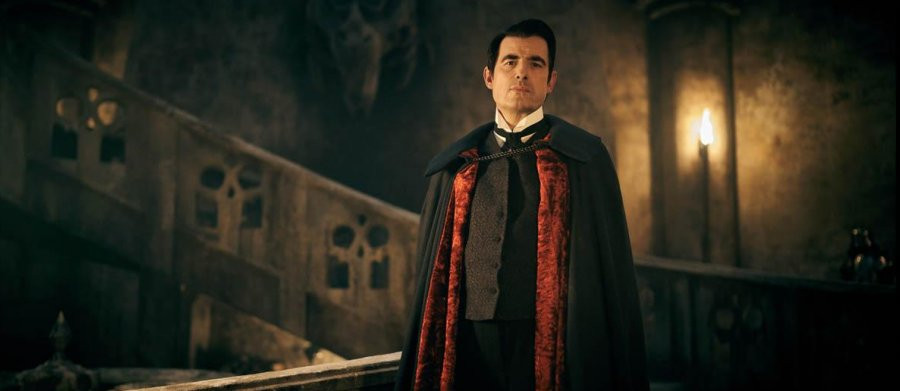
The Outlaws - Season 2
2022 - United KingdomThe ease with which our heroes take to drug dealing is quite shocking
The Outlaws Season 2 reviewed by John Winterson Richards
That said, The Outlaws was never the sort of show that was ever going to subvert expectations, so it is probably no surprise to reveal that it does not end in tragedy. If it was a creature, it would have big eyes, soft fur, and the words "Please Like Me" painted on it, and it does indeed succeed in being very likeable thanks to good characterisation and cheerful location work in Bristol.
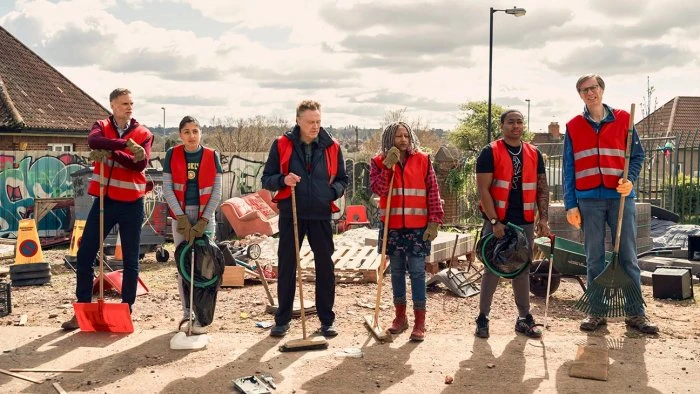
The second season is a direct continuation of the first. Indeed, since both were filmed at the same time, they can be viewed as two halves of a single season "miniseries." A streaming service would probably have released the show as such, but twelve episodes at once is a bit long for the BBC these days. They could probably have tightened it up a bit to ten, but they obviously wanted to get as much as they could out of a high status production with a big Hollywood name attached. In terms of resales, it is probably a sensible commercial decision.
The story picks up where it left off. Several of our heroes have already spent or lost the money they found while doing "community service" renovating a derelict hall in inner city Bristol. Now the major drug dealer to whom the money belonged wants it back with interest.
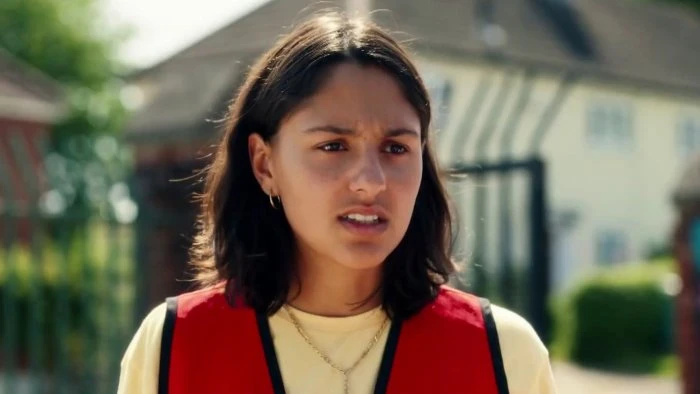
In a moment straight out of Ozark, Rani (Rhianne Barreto), under extreme pressure, promises to pay the lot and, what is more, launder it. This intrigues the drug dealer (who is known simply as "The Dean," even if his ecclesiastical or academic affiliations are never specified). How does she propose to do that? Rani has no idea but she is a brainbox who got into Oxford. This is enough to satisfy The Dean (evidently not a Cambridge man then), but he makes it clear that the consequences will be severe if she and her friends fail to come up with the whole amount, freshly laundered, by the deadline.
However, it turns out that getting one's hands on a very large amount of hard cash at short notice is really not that easy, even for people who got into Oxford. Who knew? It soon becomes obvious that the best option is the way that the drug dealer's money was made in the first place. This is hardly a surprise, since the show has been pointing in this direction from the start. What is slightly surprising is that more is not made of the fact that Rani's specialist subject is chemistry. Instead, an outside "cook" is brought in. Anyway, the main point is that the show suddenly turns from Ozark into Breaking Bad.

The ease with which our heroes take to drug dealing is quite shocking. The extent to which this is deliberate is unclear. Company director John (Darren Boyd) and left-wing activist Myrna (Clare Perkins) in particular are both, in their different ways, very moral people - him out of middle class propriety and her having lived her life subject a tightly restrictive political code - and one would have thought both would have had deeper qualms.

John is completely lost and, with the rest of his life falling apart at the same time, begins to fall into the abyss. He manages to find some backbone and pull out of his spiral just in time. He even manages to stand up to his domineering father (Ian McElhinney), even if one cannot help feeling that it is too little, too late - and that his father may be right about his son's weakness.
Myrna tries to mitigate her actions with what might be viewed as a piece of traditional British whimsy but could also be seen as typical of the hypocrisy of people of a certain mindset. That it is given an artificially happy "pay off" does not alter the fact that her integrity on her own terms, her defining and redeeming feature as a character, is gone, and the audience may be left feeling a bit uncomfortable by that, as is Myrna herself. She is granted a sort of absolution in the end which could also be interpreted as the disappearance of her conscience.
By contrast, Rani seems to have no moral core at all and soon begins to enjoy the practical challenges of her new role. If she is the Wendy Byrde of the Ozark analogy, Ben (Gamba Cole) is its Marty, doing what he must but with increasing reluctance. As the son of an addict, he is genuinely appalled by the prospect of becoming a dealer and wants to get out as soon as he can. It is Rani who keeps leading him deeper out to sea.

The "Romeo and Juliet" romance between Rani and Ben is founded on both rather assuming the other is someone they are not. Ben sees Rani as a symbol of the life of respectability of which he secretly dreams. She was initially attracted to him under the impression that he was a "bad boy from the other side of the tracks" when in reality he has a lot in common with the aspirational working-class father against whom she is rebelling. This is played out very cleverly with a pair of slippers as a motif.
The irony of Rani's rebellion is that she finds that she has simply replaced her parents' ambitions for her with Ben's - which are narrower. We find ourselves hoping that, once she has worked her pent-up frustration out of her system, she will end up following her parents' plans for her after all by taking up her place in Oxford - except as her choice rather than theirs. Her story arc is by far the best of all the main characters' and Barreto makes her more sympathetic than some of her actions deserve. If she sometimes seems selfish and silly, we can see how she got that way and why she probably does need to make some mistakes in order to discover who she really is. At least she proves capable of growing and learning from experience.
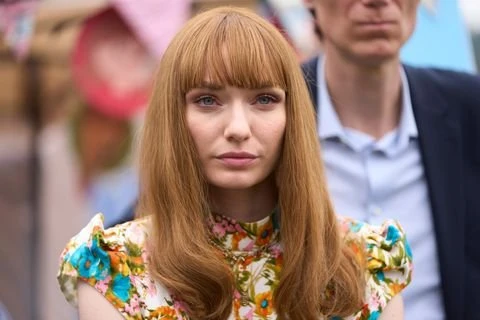
Lady Gabby (Eleanor Tomlinson) also shows signs of growth, at least on her own superficial level. There seem to be heavy hints that she and her occasional solicitor Greg (co-writer Stephen Merchant) might be the solution to each other's problems. The narrative difficulty is that Gabby has identified herself as a lesbian. The way the character is written and played, this could easily be shown to be another of her "social media" poses, but there would undoubtedly be complaints from certain quarters if the show suggested such a thing were even possible.
The script nevertheless makes a few solid satirical points about our current "social media" culture and the lynch mob mentality of public "shaming." It even takes a couple of jabs at Bristol's highly charged racial politics (it is perhaps worth noting that hardly any of the millions of slaves carried in Bristol ships were landed in their home port, so few of today's Bristolians are actually descended from them). If it pulls its punches, it deserves credit for daring as much as it does in the present climate.
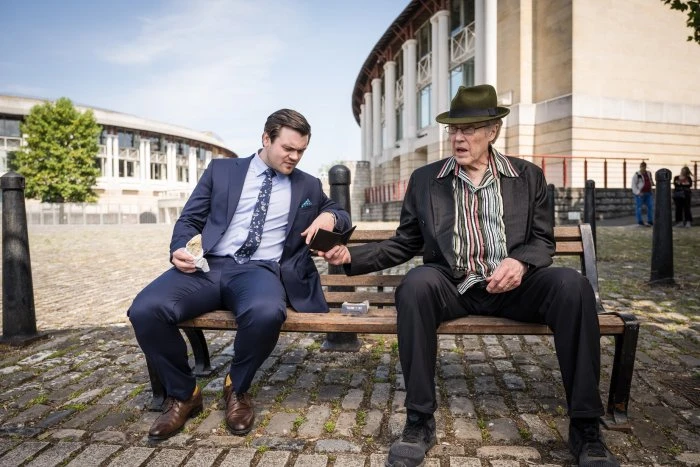
The biggest disappointment is that Season Two does not seem to know what to do with Christopher Walken's Frank. He has his own storyline about his relationship with his daughter (Julia Davis) and her children which is really not that compelling. When he is brought in to the main storyline, Frank pretending to be a supposedly frightening Mafioso only serves to remind us that it is now almost thirty years since Walken was genuinely chilling in such a role in True Romance. That said, Walken is still Walken and it is always a pleasure to see him in anything.
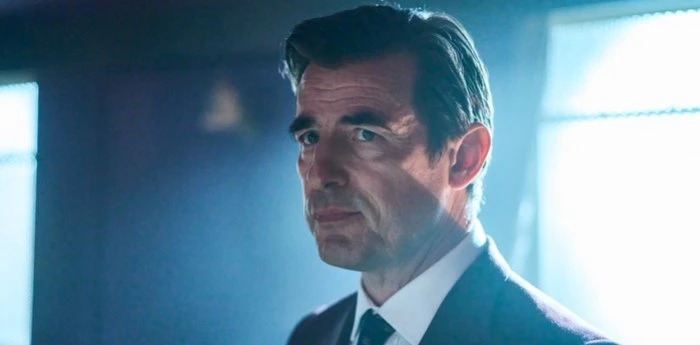
Claes Bang as The Dean is actually more menacing than Walken in their scenes together. Indeed, his physical presence is enough to draw attention from the fact that the character is a bit of a cliché. Far more interesting is middle ranking dealer Christian (Charles Babalola), a dangerous antagonist in Season One who becomes a reluctant ally in Season Two, and begins to become more sympathetic as we see more of him. He shows that he is also capable of development and invites us to consider why people become dealers in the first place.
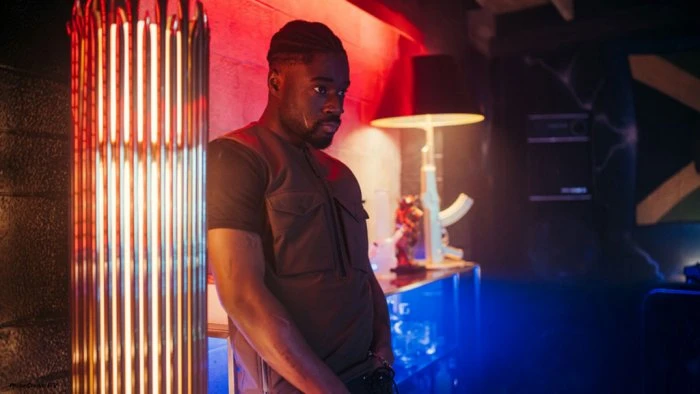
Jessica Gunning continues to steal the show as the gang's "community service" supervisor Diane. Perhaps she was stealing too much, because the decision seems to have been taken to put less emphasis on the character, in spite of her training as a Police Community Support Officer opening up fertile new tracts of comedy. The seriousness with which she takes a role that is not generally held in high esteem is both amusing and oddly moving. This woman deserves her own series.

There remains a slight inconsistency of tone. For the most part the show seems to be aiming at the style of the traditional lighthearted British "caper" movie. There is a definite The Lavender Hill Mob vibe about it. Yet there are also moments when it seems to touch on more serious social issues. It scuttles away almost immediately when it does, but there is still enough here to suggest it might easily have been a very different show, perhaps a more interesting one.
It all wraps up on a slightly ambiguous note. The main storyline is complete, and all the characters have some sort of resolution that seems appropriate. If they do not get exactly what they deserve, each is left in a place consistent with where their previous actions have taken them. Yet much is still left up in the air.
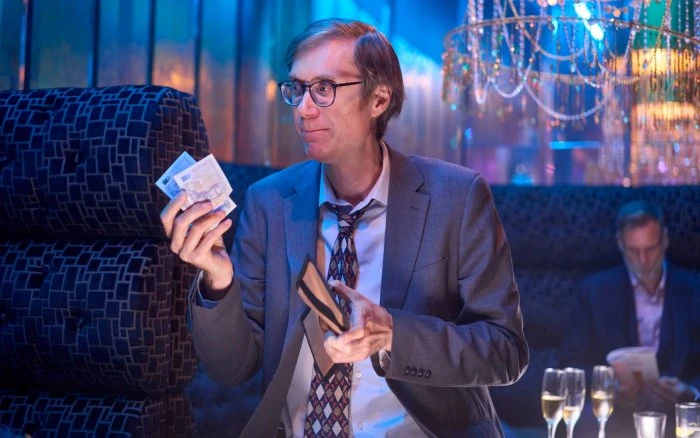
That none of the character arcs is entirely complete is an accurate reflection of real life - but it could also be the result of a deliberate decision to keep the door open to a potential sequel. Merchant has indicated in interviews that he is not hostile to the idea, even if the original intention of the BBC seems to have been to keep it as a "one off" prestige project. Either way, Merchant should take pride in his work here. He has demonstrated his growing maturity as a writer apart from his frequent collaborator Ricky Gervais. He has also delivered an affectionate tribute to his home town of Bristol in the form of an instant classic comedy drama.
Seen this show? How do you rate it?
Seen this show? How do you rate it?
Published on July 1st, 2022. Written by John Winterson Richards for Television Heaven.


